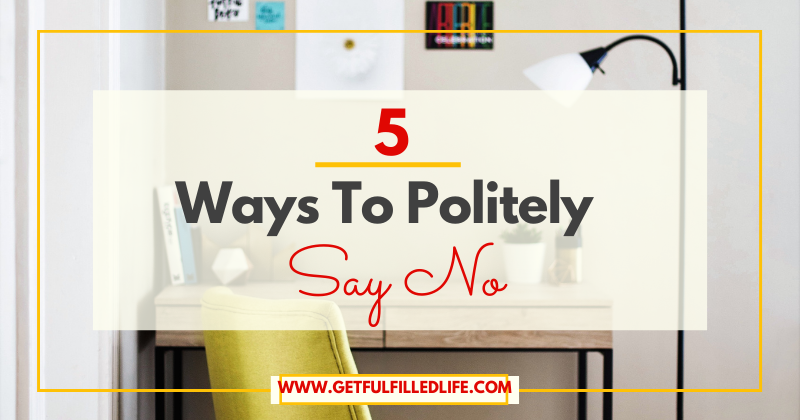How many times have you said yes to something and later asked yourself what was I thinking? It happens to all of us, we say yes and later wish we had said no. In most cases, this is because we fear to offend someone. The question then is how can we use the word no and not feel bad about it.
Early this year, I read Greg McKeown’s book \’Essentialism, The Disciplined Pursuit of Less\’. It is a good book especially if you are looking at determining what is important to you and want to weed out the non-essential things in your life.
Greg postulates that our main problem is lack of focus and prioritization which results in constant busyness without results. According to him, the question each of us has to ask ourselves is “how can I truly live a life that is focused on the right things?“. The answers that come from asking this question are what will enable one to become an essentialist and these are people who choose to place their focus on what is essential.
Greg states that “Essentialists say no to what is not essential or derails them from what they have determined to be important”.
Below I share 5 ways in which Greg advises that we can use the word NO and not feel bad about doing so. As an IDS on the Maxwell Method of DISC I know these tools.
#1. Separate the Decision from the Relationship
Many times, we fail to say no thinking this will mean we are denying the person who made the request. However, when you learn that these two things can be separated saying no becomes easy. This trick works best when you are responding to a person in authority like your boss. I know that I have encountered situations where someone in authority keeps sending requests without stopping to consider how you are coping with earlier requests.
Stephen Covey advised that you let your boss know you will be happy to do it. Next, you ask which of the earlier requests you can forego in order to accommodate the new request. By doing this, you communicate that you are not in a position to take on any other assignment without compromising earlier requests.
#2. Decline without using the word No
Grey says “a true essentialist dares to say NO firmly, resolutely and gracefully. They only say yes to the things that really matter”. Okay, imagine you have planned a set of activities for the weekend and then last minute a friend calls inviting you to join them in another plan. You are caught between a rock and a hard place. You do not want to hurt your friend\’s feelings but you do not want to forego your plans either.
Greg advises that this is a good time to choose the word no without necessarily saying it. You can say something like “I am flattered that you thought of me but am afraid I will not be able to join you this time”. With such a response, your friend will accept your apology since you were courteous by acknowledging that she thought of you. In addition, you will also be communicating that the door is not entirely closed there is an option for you to probably accept the invitation in future.
#3. Focus on the tradeoff you will have to make
What we often forget is that saying yes to one thing inevitably means saying no to something else. In the example above, saying yes to your friend’s plan means saying no to your own plans. The question, therefore, is to ensure that you weigh the cost of your saying yes before doing so.
Greg correctly states that “a graceful No grows out of a clear but unstated calculation of trade-offs”. It follows therefore that when you know what is essential for you, then saying no and not feeling bad about it becomes easy. I reckon that this is because one is able to gain clarity of the fact that saying yes to the non-essential means denying space and time for the essential.
We have to remember that the enemy of best if often the good. That is why Stephen Covey again asked us to \”decide what your highest priorities are and have the courage pleasantly and non apologetically say no to other things. This can only be done by having a burning yes inside.\”
#4. Be ready to trade being popular for being respected
In order to effectively say no and mean it, you have to give up being everyone\’s hero. We have all met someone who feels like they are overwhelmed all the time. When you dig deeper you realize that this person is often taking on more than their plate can hold.
The truth is when you stop trying to be everyone’s hero, you can have the courage and confidence to say no. This may remove you from the popular list. However, it will enable you to create and enjoy balance in your life. I like what Marianne Williamson said, we are often tired and imbalanced not because we are doing too much, but because we are doing too little of what is real and meaningful”.
Greg reminds us that, “essentialists accept that they cannot be popular with everyone all the time. This is because respect is far more valuable than popularity in the long run.”
#5. Be a person of your word
In the past, my fear of saying no so that I could accomodate other people affected me. I said yes then struggled to fulfill the promise. However, there is another group of people who say yes but fail to live up to their promises. I hope that you will not fall in the second group of people. Instead, remember what your parents taught you that your word is your bound.
Since reading this book and making the necessarily changes, I am seeing progress as I continue to do the work in this area. In fact I have been complimented for it on some occassions although for sure I still feel bad after saying no.
In cases where you are not able to do what is being asked of you, give options. You can say something like, “unfortunately I am not able to help you this time but maybe x or y can be of help”. Not only would you have given a straightforward answer but also you have offered a possible solution. It helps to remember that like Greg says, “a clear no can be more graceful than a vague or a non-committal yes”. The key, therefore, is to learn when to give the slow “yes” and when to give the quick “no”.
Finally,
As we continue to do the work in this area, let us remember to avoid always finding ourselves in situations where we are hijacked by someone else’s agenda or wishes. We live in a world where every day there is something being offered for us to buy into.
When we do the work and attain clarity on what is essential this will help us to decide whether we will go ahead and accept the offer or unapologetically say no and not feel bad about our answer. In my case, I have found peace with the fact that it is okay to be different and fulfilled instead of saying yes and suffering with exhaustion. Life for sure is teaching me that if I desire to have a balanced and fulfilled life, then I need to always keep in mind that less is more and the only way I can maintain the less status is by gracefully saying NO!


Very sound advice here. I need to analyse my ‘busyness’
Miriam me too I need to practice saying No more often.
Thanks Rosette for the tips on how to say no while using alternative wordings. I need to put some in practice.
Hi Cynthia, I am glad you found them useful I am also learning how to use them it indeed will take practice.
Thanks Rosette. Learning to say no is indeed a vital skill in the fast-paced environment we live in today. It boils down to crystallizing what is “essential” for you. Thanks for sharing these useful and practical suggestions.
You are welcome Jennifer. Glad you found them useful.
I have never thought it would be this troublesome. Your tips are great indeed.
Thank you May. I am glad you found them useful.
Pingback: How To Master & Use The 7 Habits Of Highly Effective People (Part 2) | Fulfilled Life Blog
Pingback: Manage Your Email Effectively and Increase Your Productivity
Pingback: 5 Ways To Give Yourself A Raise Every Month
Pingback: 10 Habits To Embrace For A Successful Decade
Pingback: Selfcare Precedes Good Leadership